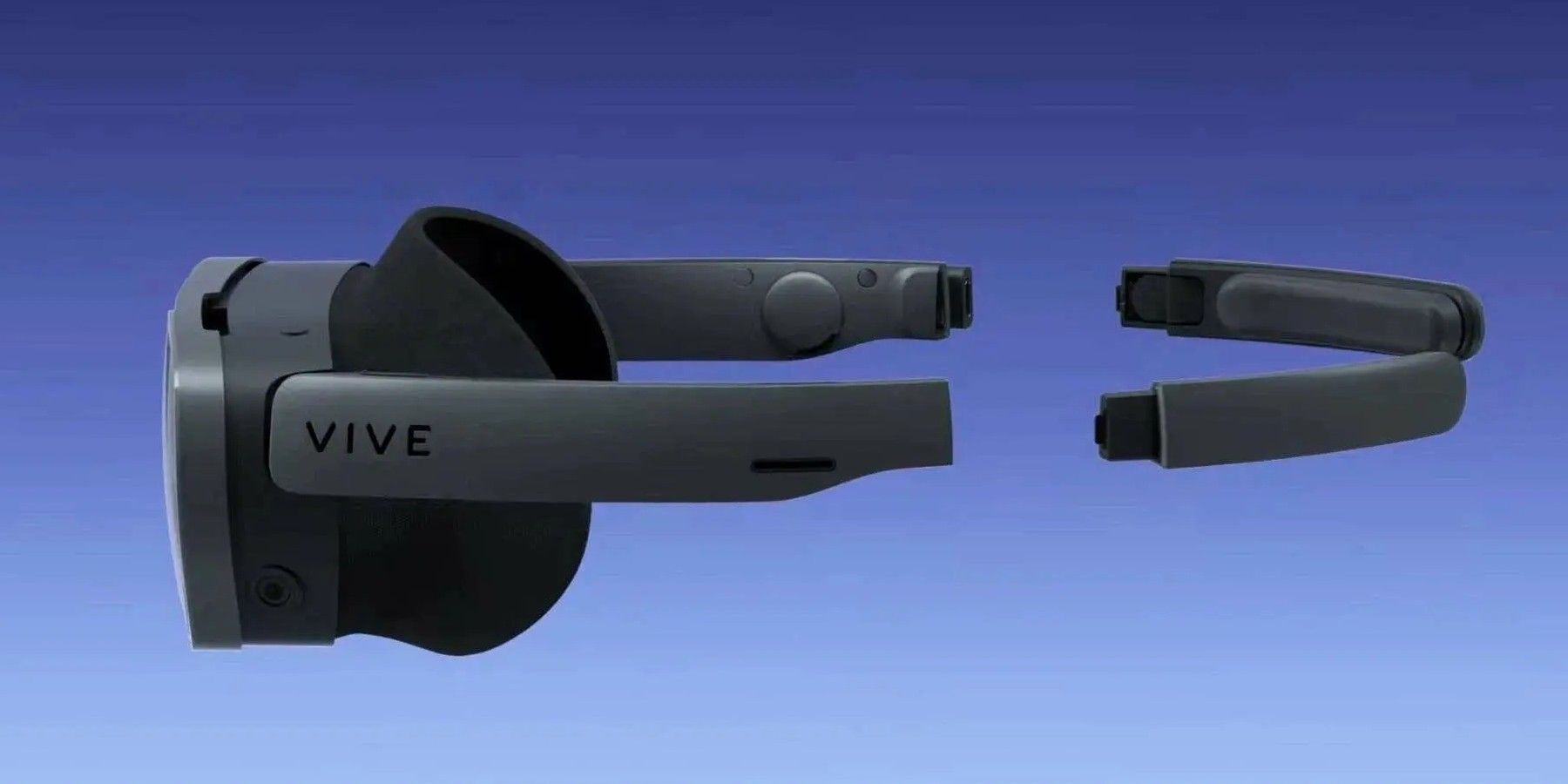HTC recently announced its newest standalone VR/AR headset at CES 2023. The HTC Vive XR Elite is a small, convertible, all-in-one headset meant to compete with the Meta Quest 2. The new XR Elite will have better specs, more features, and a much smaller and more lightweight form factor than the Quest 2. One thing that stands out with this announcement, however, is that the HTC Vive XR Elite seems to have all the features that the company's previous headset, the Vive Flow, should have had.
The HTC Vive Flow was released in November 2021 with a somewhat confusing target audience. Due to its compact design and incredibly low weight, the Flow can be taken anywhere but must be connected to an external power bank to be used. The Flow is also severely limited in its capabilities, as it requires a connection to a phone, which casts apps to the headset and serves as a 3DoF controller. With a similar form factor and fewer compromises, the HTC Vive XR Elite looks to take all the things the Flow did right while removing all of its limitations.
HTC Vive XR Elite vs. Vive Flow
With the Vive XR Elite, HTC improves upon the Vive Flow in considerable ways and opens it up to a much larger audience. The XR Elite has technical specs closer to that of the Quest 2 or the company's own Vive Focus 3. However, the XR Elite's compact design and convertibility make it significantly more portable. Whereas the Vive Flow leaned so heavily into the portable design that it neutered its capabilities, the XR Elite embraces the potential of VR to bring more diverse and complex experiences to users.
Compared to the Vive Flow being meant for use cases like relaxation, fitness, meditation, and media consumption, the Vive XR Elite offers more for gamers and VR enthusiasts. The XR Elite has a Qualcomm Snapdragon XR2 processor, 1920x1920 per-eye resolution (3840 x 1920 pixels combined), 90Hz refresh rate, up to 110-degree FOV, 12 GB of memory, and 128 GB of storage. The XR Elite will also offer hand-tracking, a depth sensor for mixed reality, and the ability to connect to a PC either via Wi-Fi or USB-C cable. This gives the XR Elite plenty of standalone performance while also having access to PCVR games like Half-Life: Alyx.
One aspect of the Vive XR Elite that makes the Vive Flow's limitations all the more disappointing is the fact that the XR Elite is convertible. By removing the battery pack from the rear of the head strap, users can wear the headset in a lighter, glasses-style configuration, similar to the Flow. Considering the Vive Flow costs $499 USD, though, the price is too steep for casual consumers simply looking to relax or consume media. For many, pricing is a major concern with HTC's lineup of VR headsets at the moment, as the company struggles to regain consumer appeal.
The HTC Vive Focus 3 is currently on sale for $1,299, which is a standalone VR headset geared more toward business use. The HTC Vive XR Elite, which combines the power of the Focus 3 with the portability of the Flow, falls between the two at $1,099. If HTC had included the XR2 processor in the Flow and removed the need for a phone connection, it could have served as a lightweight and compact Quest 2 alternative. Even if the company sold the Flow for $700-$800, it could have offered enough power, portability, and flexibility for the metaverse and gamers alike.
It's difficult to say for sure whether the HTC Vive XR Elite will capture the mainstream appeal in the way Meta's VR devices have. HTC's newest headset certainly has impressive functionality for such a compact VR headset, but with such a similar design, it should have been available in the Vive Flow. Because the Meta Quest 3 is rumored to release sometime in 2023 with a price point comparable to the Quest 2, many are hoping other VR companies like HTC will find ways to reduce the cost of their devices.
The HTC Vive XR Elite is expected to release in February 2023.





